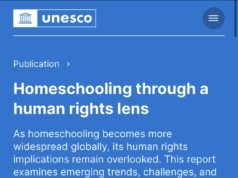
Many home educators are concerned that the proposed Basic Education Laws Amendment Bill (BELA Bill) will have a negative impact on their home education but little or no research is available that investigates how the BELA Bill will impact the lives of home educators.
In 2017, in order to close this research gap the Pestalozzi Trust commissioned research into home education practice at the time and into what impact Home educators felt the Bill would have. The “Impact of BELA BILL” Survey was the largest piece of research into home education in South Africa in recent years. Nearly 3000 home educators participated in this survey and some very interesting facts and trends have emerged.
Some of the key findings of the research are listed below:
Do home educators use CAPS?
The vast majority of home educators who responded to the survey (89%) do not use CAPS-aligned curricula and programmes. This means that the CAPS focus of the BELA Bill [the proposed home education programme predominantly covers the acquisition of content and skills at least comparable to the relevant national curriculum – s51(2)(a)(iii)] is misplaced. There is little point having home educators measured against CAPS outcomes by CAPS-trained assessors when very few of those who responded to this survey use CAPS.
Do home educators follow grades?
Over 68% of home educators do not follow the strict age/grade structure that is followed in most schools. This indicates that both the Policy on Home Education and the BELA Bill will be unworkable. For example, the BELA Bill states that “the proposed home education programme is suitable for the learner’s age, grade level and ability” – s51(2)(a)(iii). How this will work in practice is hard to tell but we know that on the face of it, it does not accord with home education practice.
The cost of assessment is a major concern for home educators
90% of respondents felt that assessment costs, especially if they were annual, would impact their home education. Many home educating families have made significant sacrifices to home educate and are not in the position to waste money on assessments that serve no educational purpose.
Keep an eye out for more results from the research.
Thanks to all everyone who participated in the initial Survey in 2017.
Please support our efforts to gather more quality data by participating in future research projects.






A very necessary research with a needed perspective.
Many home educating parents wants to invest in a globally recognized efucation, like Cambridge.